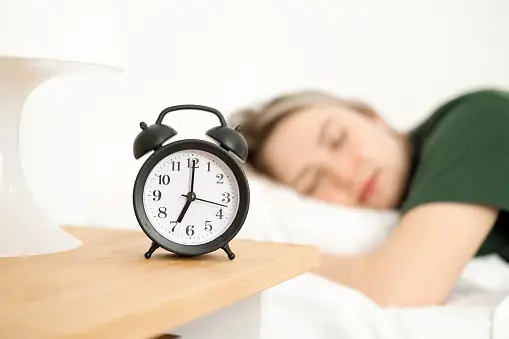How can I align my circadian rhythm for better sleep?

Aligning your circadian rhythm for better sleep involves understanding the natural internal processes that regulate your sleep-wake cycle and how they are influenced by external factors like light exposure, lifestyle, and habits. A well-aligned circadian rhythm can enhance sleep quality, boost daytime alertness, and improve overall health. Here’s a comprehensive guide on how to achieve this alignment:
Understanding Circadian Rhythms
Your circadian rhythms, often referred to as your “body clock,” is a natural, internal system designed to regulate feelings of sleepiness and wakefulness over a 24-hour period. Controlled by the brain’s hypothalamus, circadian rhythms are influenced by external cues, especially light, which helps determine when you feel awake and when you feel sleepy.
The Importance of Light
Light exposure is the most significant external factor affecting your circadian rhythm. Natural sunlight during the day helps keep your circadian rhythm healthy, improving daytime energy and nighttime sleep quality. Conversely, exposure to light, especially blue light from screens, too close to bedtime can signal your brain to stay awake.
Tips for Better Light Management:
- Maximize Daylight Exposure: Spend time outside during daylight hours every day, or if you’re indoors, try to make your environment as bright as possible during the day.
- Reduce Blue Light at Night: Limit screen time at least an hour before bed. Use blue light filters on your devices if necessary.
Consistent Sleep Schedule
Going to bed and waking up at the same time every day, even on weekends, can significantly improve your sleep quality by reinforcing your body’s sleep-wake cycle.
Tips for Establishing a Consistent Sleep Schedule:
- Set Fixed Times: Choose a bedtime and wake-up time that allows you to get at least 7-9 hours of sleep, the recommended amount for most adults.
- Gradual Adjustments: If you need to adjust your sleep schedule, do it gradually, in 15-minute increments, to allow your body to adjust.
Optimizing Your Sleep Environment
Creating a restful sleeping environment can greatly enhance the quality of your sleep. Factors such as temperature, noise, and light play a significant role in how well you sleep.
Tips for a Sleep-friendly Bedroom:
- Keep it Cool and Dark: Maintain a cool, comfortable temperature in your bedroom and use heavy curtains or an eye mask to block out light.
- Minimize Noise: Use earplugs or white noise machines to drown out disruptive sounds.
Healthy Lifestyle Choices
Your daily habits and lifestyle choices can either support or disrupt your circadian rhythm.
Diet and Exercise:
- Watch Your Diet: Avoid heavy meals, caffeine, and alcohol close to bedtime.
- Regular Exercise: Engage in regular physical activity but avoid vigorous exercise close to bedtime.
Relaxation and Routine:
- Establish a Pre-sleep Routine: Engage in relaxing activities before bed, like reading or taking a warm bath, to signal your body it’s time to wind down.
- Manage Stress: Practice stress-reduction techniques such as mindfulness meditation or deep breathing exercises to improve sleep quality.
Understanding and Managing Sleep Disorders
If you’ve tried these strategies and still struggle with sleep, you might be dealing with a sleep disorder, such as insomnia or sleep apnea. It’s important to recognize the signs of these conditions and seek professional advice.
Seeking Professional Advice
Consulting with a healthcare provider can help identify any underlying issues affecting your sleep. They might suggest a sleep study or other assessments to diagnose potential sleep disorders.
Conclusion
Aligning your circadian rhythm for better sleep requires a holistic approach that includes managing light exposure, maintaining a consistent sleep schedule, optimizing your sleep environment, making healthy lifestyle choices, and seeking professional advice if necessary. By understanding and respecting your body’s natural sleep-wake cycle, you can improve your sleep quality, boost your daytime energy, and enhance your overall well-being.
click here to visit website




